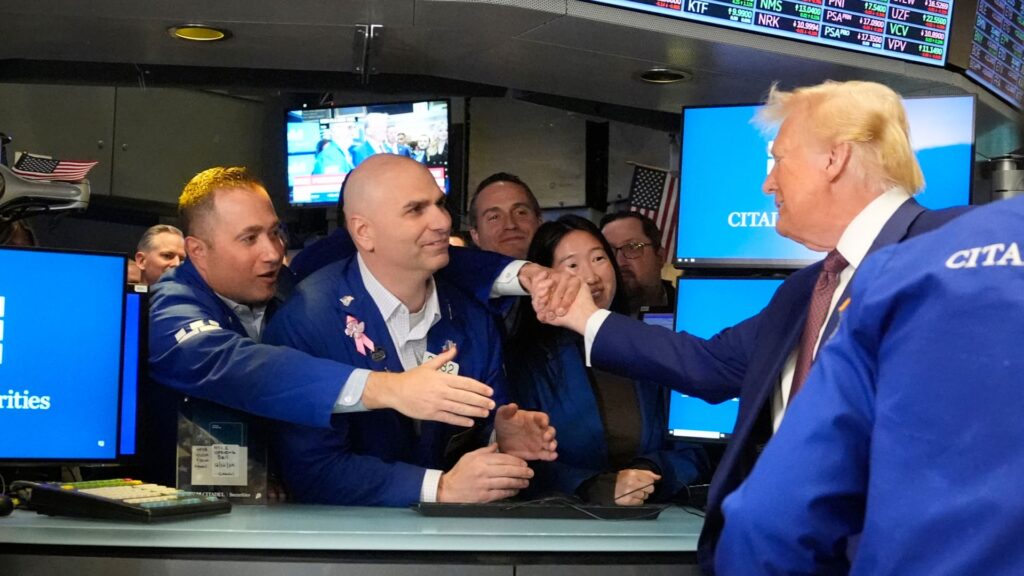Donald Trump is greeted by traders as he walks the floor of the New York Stock Exchange on Dec. 12, 2024.
Alex Brandon | AP
Stock futures were lower Wednesday as investors weighed news of President Donald Trump’s 25% tariff aimed at foreign cars.
Futures tied to the Dow Jones Industrial Average fell 120 points, or 0.2%. S&P 500 futures slipped 0.3%, while Nasdaq 100 futures were 0.4% lower.
Trump had previously hinted that he would move to implement auto tariffs ahead of the April 2 date for reciprocal tariffs, which the president has labeled “Liberation Day.” The president since beginning his second term in January has discussed imposing duties on countries that have their own tariffs on U.S. imports. Trump also noted on Wednesday that his retaliatory tariffs will be permanent for his entire second term.
Shares of General Motors pulled back 7% in extended trading following Trump’s remarks, while Ford stock was 5% lower. Tesla stock gained about 1%.
The president said both where the car parts come from and where the finished production occurs will “have very strong policing.”
“It’s pretty easy to do, if parts are made in America and a car isn’t, those parts are not going to be taxed or tariffed,” Trump added.
Stocks took a leg lower and reached their lows of the session on Wednesday following news from the White House that Trump would announce the duties on imported cars later in the day.
The news comes as investors are already anxious about how Trump’s retaliatory tariffs will affect the broader U.S. economy, which is already showing some signs of weakness. Consumer confidence, for example, reached a 12-year low in March, according to a Conference Board report, in the latest indication of broader pessimism toward the economy. The board’s measure follows a similarly weak reading of the University of Michigan Survey of Consumers for March.
“Today was a reminder that despite the recent rebound in stocks, volatility remains as policy uncertainty lingers,” said Daniel Skelly, Head of Morgan Stanley’s Wealth Management market research and strategy team. “Moreover, next week’s tariff deadline will likely be more of a starting point for negotiations than a conclusion, so the market may struggle to recover in a straight line higher.”
Stocks are clinging to marginal gains this week. The S&P 500 has ticked up roughly 1% alongside the Nasdaq Composite. The 30-stock Dow has gained 1.1% so far this week.
On the economic front, investors will monitor fresh jobless claims data on Thursday, followed Friday by the March reading of the personal consumption expenditures price index. The PCE is the Federal Reserve’s preferred gauge of inflation.














